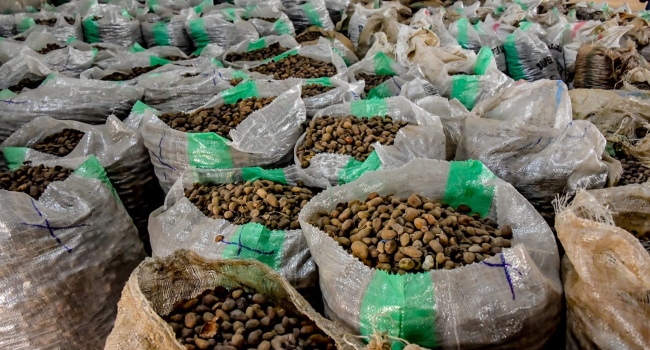President Bola Ahmed Tinubu has ordered an immediate six-month temporary ban on the export of raw shea nuts in a move to strengthen Nigeria’s shea industry, boost local processing, and curb informal trade.
According to Mediaplusng.com, the directive is expected to grow the country’s shea value chain, generating about $300 million annually in the short term. The policy, which takes effect immediately, will be reviewed at the end of the six-month period.
Announcing the decision during a multi-stakeholder meeting at the Presidential Villa, Vice President Kashim Shettima explained that the ban was not an anti-trade policy but a strategy to secure raw materials for local industries. He stressed that it will enable factories to run at full capacity, create jobs, and improve rural incomes.
Speaking further, the vice president said the new directive would “transform Nigeria from an exporter of raw shea nut to a global supplier of refined shea butter, oil, and other derivatives.” He emphasized that the policy is about industrialization, rural transformation, women empowerment, and expanding Nigeria’s global trade footprint, Mediaplusng.com reports.
Highlighting Nigeria’s current challenges, Shettima noted that while the country produces nearly 40% of the world’s shea, it only controls 1% of the $6.5 billion global market. He projected that the ban will help Nigeria earn $300 million annually and potentially increase that figure tenfold by 2027.
Minister of Agriculture and Food Security, Senator Abubakar Kyari, also explained the benefits of the directive. He said Nigeria produces about 350,000 metric tonnes of shea annually across 30 states, with the potential to reach 900,000 tonnes. However, over 90,000 metric tonnes are lost every year through informal cross-border trade, leaving processors to operate at just 35–50% capacity despite a national installed capacity of 160,000 tonnes.
Kyari added that countries like Ghana, Burkina Faso, and Mali have already imposed restrictions to protect their industries, making Nigeria vulnerable as the outlier. He stressed that shea is one of the few commodities where Nigeria has both comparative and absolute advantage, with over five million hectares of wild-growing shea trees.
The Minister further highlighted the gender impact, pointing out that 90% of shea pickers and processors are women. Supporting this value chain, he said, would create jobs, empower women, and boost sustainable rural livelihoods.
Kyari concluded that the temporary ban will secure domestic supply, curb informal trade, and position Nigeria to dominate the projected $9 billion global shea market by 2030.
READ ALSO: President Tinubu Orders Immediate Ban on Raw Shea Nut Export





1 Comment
[…] READ ALSO: President Tinubu Orders Immediate Ban on Raw Shea Nut Export […]